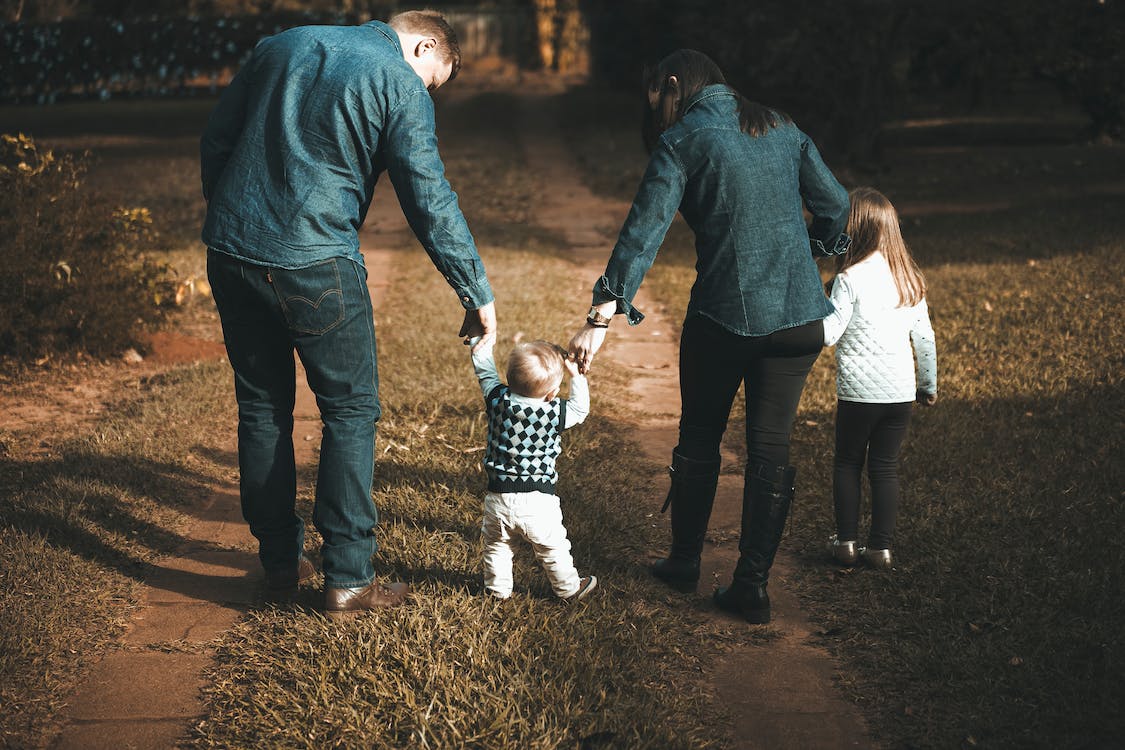You don’t have to be a perfect parent, just a good one

It happened during the morning rush. Somewhere between “where are my jeans” and “who hid my shoes,” there it went. A careless arm on a hungry boy sent pancake syrup ribboning across the dining room floor.
At some point in the history of our house, a previous owner had installed carpet in, of all things, the kitchen and dining room. Surely, surely, he or she was childless, for any human with small people who ate things and dropped things and spilled things and smeared things would never have chosen a rug. An industrial-grade drop cloth, perhaps, but never a rug.
As I looked at that sticky spot, I felt my temper flare. I don’t recall my words that day, but I do recall the conviction that fell afterwards. Any minute, the big, yellow bus was going to come and whisk my son away. I did not want the last words he heard before boarding the bus to be harsh and angry ones. Calling him to me, I looked down into his bright, blue eyes and said the words that always change things. “I’m sorry. Please forgive me.”
I shall never forget his reply. “It’s okay. I knew you would say that.”
To this day, my heart melts like wax at the touch of a flame when I recall it. At the tender age of eight, my tender-hearted boy knew two things—that Mama might mess up, but she would apologize, and that he could quickly forgive. It was a powerful lesson for us both.
Failure. Apology. Forgiveness. This simple formula holds the answer to much relational suffering and pain. As much as we long to be perfect parents, it simply isn’t possible. Nothing exposes our fault lines like having a child, and nothing gives us greater opportunity for personal growth. We will make mistakes, and the reasons are many. We’re tired. We’re discouraged. We’re distracted. We’re carrying our own emotional pain, and we parent out of that.
Yes, failure is inevitable. Disaster, however, is not.
In every situation, we have a choice. When we find ourselves failing, it’s an invitation to dig deeper, asking questions like, “Why? Where is this coming from?”
If it is baseline impatience, a quick temper, or a lack of self-control, for instance, we can choose to work on this mindfully and with great intention. We can take responsibility for our own immaturity and treat our children with a respect that will, hopefully, be mirrored back to us one day.
If the roots of repeated failures lie in our own painful childhood or life experiences, we can choose to face the past. We can seek the help and counsel we need, and we can choose to live a different way. This is hard, but hard doesn’t mean bad. It doesn’t mean impossible. It just means hard.
When we know we’ve failed, we can (and should) apologize. With no excuses, no justification, and no self-defense, we can simply own what we did wrong and ask for their forgiveness. Since an apology is only as good as the actions that follow, we must make every effort to truly change. If we have offended our families repeatedly, forgiveness may come slowly, but that’s okay. Stay the course, walk in humility, and see what love will do in the hurting heart.
One thing I have learned as a mother is that I cannot ask my sons to be and do what I am not willing or able to be and do myself. It’s not their job to lead the way. It is mine; mine to teach and mine to model. This willingness to work on myself is one of the most powerful gifts I can give them. Tending to my own emotional, mental, physical, and spiritual health gives them the best possible chance to go out into the world as strong, healthy, confident, upright adults. It sets the foundation for healthy, loving relationships throughout the rest of their lives.
There is great consolation in knowing that we don’t have to be perfect parents. We only need to be good ones—fathers and mothers who walk in humility ahead of our children, showing them the way. When we fail, we can speak the words that always change things, “I’m sorry. Please forgive me.”
When they fail us, we can extend the same forgiveness, knowing that forgiveness and love, the twin healers, can rebuild a broken bridge. In this way, we will create strong families, the building blocks of every society and nation. As much as within us lies, then, let us devote our whole selves to the pursuit of a godly character, a clear mind, and a noble heart.
May God bless and strengthen our families. May He bless America, too.
